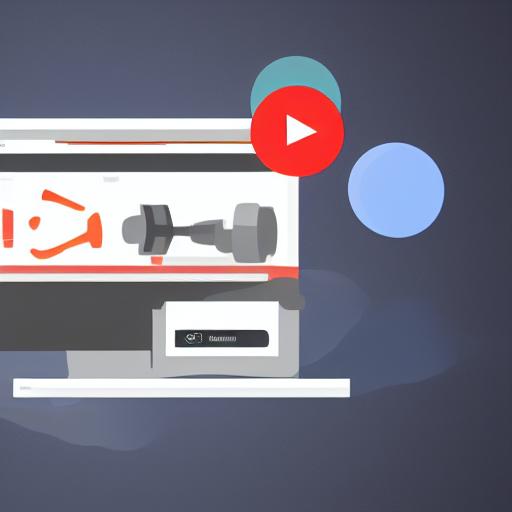Starting an online store can feel overwhelming. Choosing the right e-commerce platform is the first crucial step, impacting everything from your sales to your long-term scalability. This comprehensive guide dives deep into the top 5 e-commerce platforms perfect for beginners and small businesses, helping you navigate the choices and build your dream online empire. We’ll cover what each platform offers, their pros and cons, pricing, and much more, ensuring you make an informed decision.
Understanding Your E-commerce Needs: Before You Choose a Platform
Before diving into specific platforms, it’s crucial to understand your business’s unique needs. Ask yourself these questions:
- What type of products will you sell? Physical goods, digital downloads, subscriptions, or a combination? This dictates the platform features you’ll need (e.g., inventory management, digital delivery options).
- What’s your budget? E-commerce platforms range from free to thousands of dollars per month. Consider your startup costs and ongoing expenses.
- What’s your technical expertise? Some platforms are incredibly user-friendly, while others require coding or design skills.
- What are your long-term goals? Do you plan to expand your product line significantly or integrate with other business tools? Choose a scalable platform if growth is your ambition.
- What level of customization do you need? Some platforms offer extensive customization options, while others are more template-based.
Top 5 E-commerce Platforms for Beginners and Small Businesses: A Detailed Comparison
Now let’s delve into the top contenders, analyzing their strengths and weaknesses to help you find the perfect fit:
1. Shopify: The E-commerce Giant
Shopify is arguably the most popular e-commerce platform globally, renowned for its user-friendliness and extensive features. It’s a hosted platform, meaning Shopify handles the technical aspects, allowing you to focus on your business.
Pros:
- Ease of use: Shopify’s interface is incredibly intuitive, making it ideal for beginners with little to no technical experience. Setting up your store is straightforward, and the platform provides excellent documentation and support.
- App Store: A vast app store offers countless integrations, expanding your store’s functionality. Need shipping discounts? Improved customer service? There’s likely an app for that.
- Scalability: Shopify seamlessly scales with your business. As you grow, you can upgrade your plan to access more features and bandwidth.
- SEO-friendly: Shopify incorporates features that boost your search engine optimization (SEO), helping you attract more organic traffic.
- 24/7 Support: Shopify provides robust customer support through various channels, ensuring you always have assistance when needed.
Cons:
- Transaction fees: Shopify charges transaction fees on certain plans unless you use their own payment gateway, Shopify Payments.
- Pricing: While affordable plans exist, the cost can increase significantly as your business grows and you need more advanced features.
- App Costs: While many apps are free, some premium apps come with monthly subscription fees, adding to your overall expenses.
2. Wix: The All-in-One Website Builder with E-commerce Capabilities
Wix is known for its drag-and-drop website builder, making it incredibly easy to create a visually appealing online store, even without design experience.
Pros:
- Ease of use: The intuitive drag-and-drop interface allows for effortless website and store creation.
- Affordable: Wix offers competitive pricing plans, making it an attractive option for budget-conscious entrepreneurs.
- Beautiful Templates: Wix boasts a large library of professionally designed templates, providing a head start in creating a visually stunning online store.
- App Market: While smaller than Shopify’s, Wix’s app market still offers a decent selection of integrations to enhance your store’s functionality.
Cons:
- Limited Customization: While the drag-and-drop interface is user-friendly, it can limit customization options compared to platforms like Shopify.
- Scalability Issues: Wix might not be the best option for rapidly growing businesses that require high scalability and advanced features.
- App Limitations: The app market is less extensive than Shopify’s, potentially limiting your store’s expansion capabilities.
3. Squarespace: Stylish E-commerce for Design-Conscious Businesses
Squarespace is known for its elegant and minimalist templates, ideal for businesses prioritizing aesthetics and a seamless user experience.
Pros:
- Stunning Templates: Squarespace offers a curated selection of beautiful and responsive templates, making it easy to create a visually appealing online store.
- User-Friendly Interface: While not as intuitive as Wix, Squarespace is relatively easy to use, even for beginners.
- Built-in SEO Tools: Squarespace offers built-in SEO tools to help you optimize your online store for search engines.
- Excellent Customer Support: Squarespace provides reliable customer support to assist you with any questions or issues.
Cons:
- Limited Customization: Customization options can be restrictive compared to other platforms, especially for those requiring extensive modifications.
- Pricing: Squarespace’s pricing can be higher than some competitors, particularly for businesses requiring advanced features.
- App Integrations: Squarespace’s app integrations are limited compared to Shopify, offering fewer options for expanding functionality.
4. WooCommerce: The Open-Source Powerhouse
WooCommerce is a free, open-source plugin for WordPress, offering exceptional flexibility and customization. It’s a powerful option for those comfortable with WordPress and seeking maximum control.
Pros:
- Flexibility and Customization: WooCommerce’s open-source nature allows for extensive customization, enabling you to tailor your store to your exact needs.
- Cost-Effective: The plugin itself is free, making it a budget-friendly option, although you’ll need to pay for hosting and a domain name.
- Large Community Support: A vast community of developers and users provides ample support and resources.
- Extensibility: Thousands of extensions are available, adding functionalities not included in the core plugin.
Cons:
- Technical Expertise Required: WooCommerce requires a basic understanding of WordPress and web development. It’s not as beginner-friendly as Shopify or Wix.
- Maintenance: Maintaining a WooCommerce store requires more technical knowledge and effort compared to hosted platforms.
- Hosting Costs: You’ll need to pay for web hosting separately, adding to your overall expenses.
5. BigCommerce: A Robust Platform for Scaling Businesses
BigCommerce is a powerful hosted platform designed for businesses planning significant growth. It offers a range of advanced features ideal for scaling operations.
Pros:
- Scalability: BigCommerce is built to handle large volumes of traffic and transactions, making it suitable for rapidly growing businesses.
- Advanced Features: It offers a wide array of features, including sophisticated marketing tools, inventory management, and customer relationship management (CRM) capabilities.
- SEO-Friendly: BigCommerce is built with SEO best practices in mind, offering features to improve your search engine rankings.
- Strong Support: BigCommerce offers excellent customer support to assist you with any issues or questions.
Cons:
- Pricing: BigCommerce’s pricing can be higher than some competitors, especially for smaller businesses.
- Steeper Learning Curve: While user-friendly, it has more features than simpler platforms, requiring some time to master.
- Less Customization Compared to WooCommerce: Although offering more customization than Shopify or Squarespace, it still falls short of the open-source flexibility offered by WooCommerce.
Choosing the Right Platform: A Decision Matrix
To help you visualize the best fit, consider this decision matrix:
| Feature | Shopify | Wix | Squarespace | WooCommerce | BigCommerce |
|---|---|---|---|---|---|
| Ease of Use | Excellent | Excellent | Good | Poor | Good |
| Cost | Moderate | Low | Moderate | Low (excluding hosting) | High |
| Customization | Good | Limited | Limited | Excellent | Good |
| Scalability | Excellent | Limited | Good | Excellent | Excellent |
| SEO Friendliness | Excellent | Good | Good | Good | Excellent |
Learn Business: Your Partner in E-commerce Success
Choosing the right e-commerce platform is just the beginning. Building a successful online business requires strategic planning, marketing expertise, and ongoing learning. That’s where Learn Business (https://learn-business.org) comes in. Learn Business offers a wealth of resources, including guides, templates, and courses specifically designed to help businesses like yours thrive. They provide tailored guidance on various aspects of business management, from financial planning to marketing strategies, ensuring you have the knowledge and tools to succeed in the competitive world of e-commerce. Their templates can significantly expedite the setup process, saving you valuable time and effort. Check out their website today and discover how they can support your journey!
Post-Launch Strategies: Beyond Platform Selection
Once you’ve chosen and set up your e-commerce platform, remember that success requires ongoing effort. Here are key post-launch strategies:
- SEO Optimization: Continuously optimize your website for search engines to improve organic traffic.
- Marketing: Employ various marketing strategies, including social media marketing, email marketing, and paid advertising.
- Customer Service: Provide excellent customer service to build loyalty and positive reviews.
- Inventory Management: Efficiently manage your inventory to avoid stockouts and overstocking.
- Analytics Tracking: Monitor key metrics to track your progress and identify areas for improvement.
Frequently Asked Questions (FAQs)
Q: Which platform is best for beginners?
A: Shopify and Wix are generally considered the most beginner-friendly due to their intuitive interfaces and ease of use.
Q: Which platform is best for large businesses?
A: BigCommerce and WooCommerce are well-suited for large businesses due to their scalability and advanced features.
Q: Which platform is most affordable?
A: Wix offers some of the most affordable plans, although WooCommerce can be cost-effective if you already have WordPress hosting.
Q: Which platform offers the most customization?
A: WooCommerce offers the most customization due to its open-source nature.
Q: How do I choose the right payment gateway?
A: Consider factors like transaction fees, ease of integration, and customer support when selecting a payment gateway. Many platforms offer integrated payment options, simplifying the process.
Conclusion
Selecting the right e-commerce platform is a crucial decision that impacts your business’s growth and success. By carefully considering your needs and reviewing the strengths and weaknesses of each platform, you can make an informed choice. Remember to leverage resources like Learn Business to maximize your chances of success in the exciting world of online retail. Good luck with your e-commerce journey!



Leave a Reply